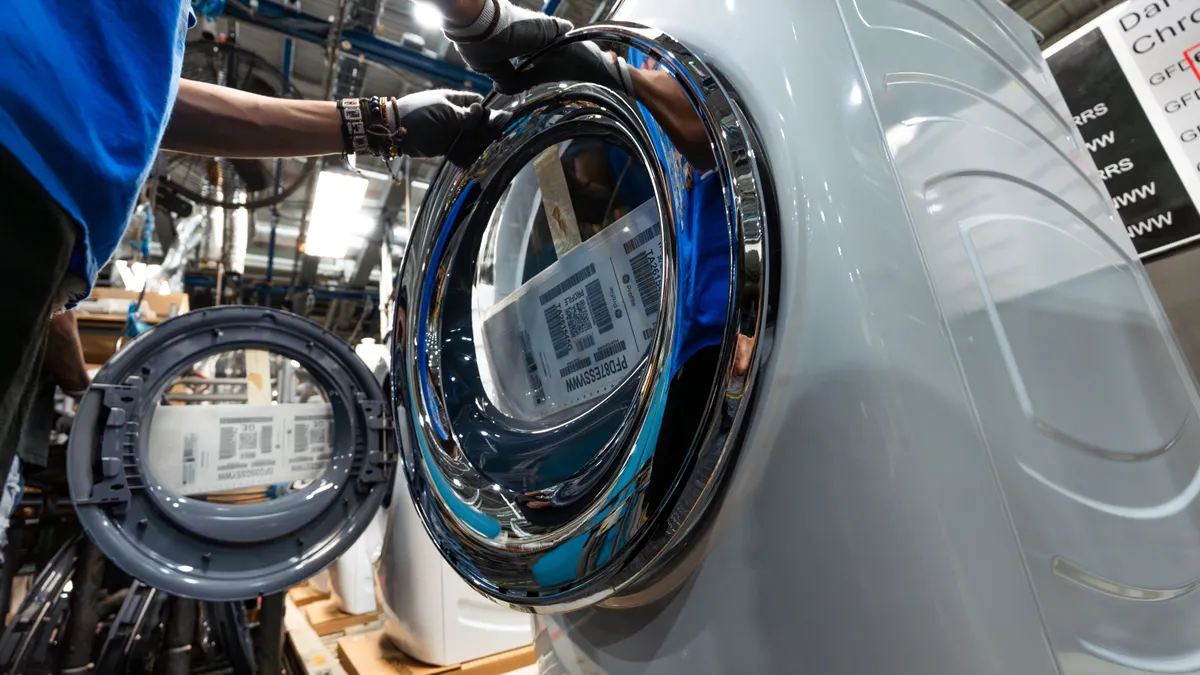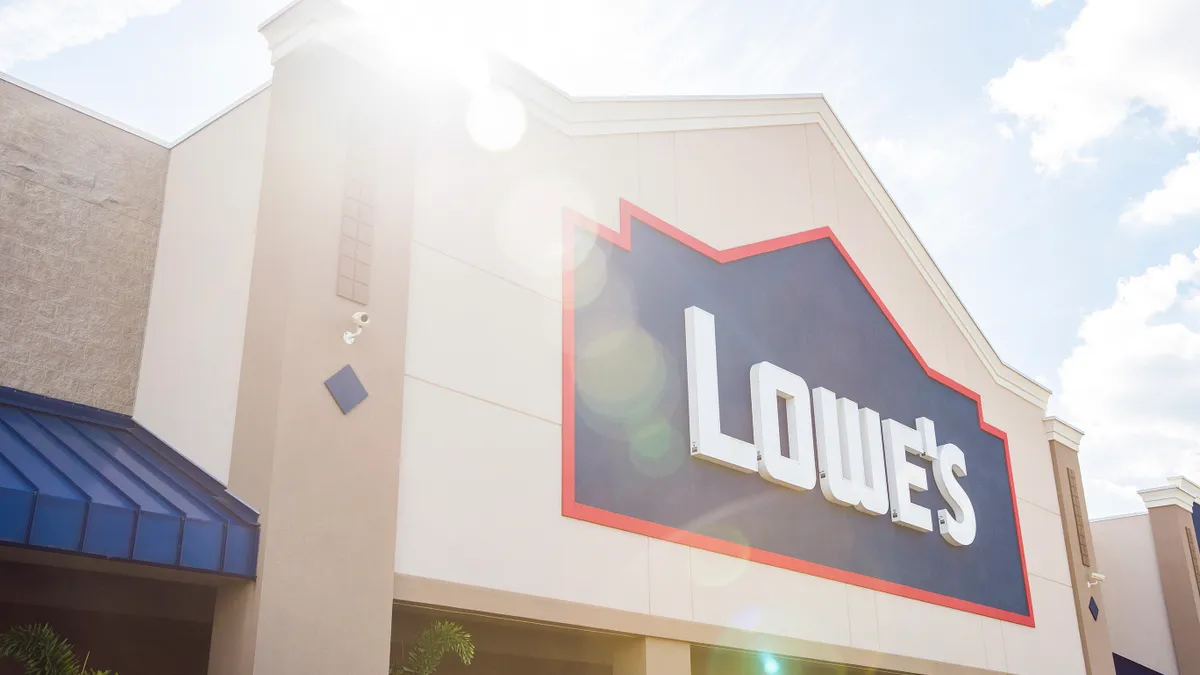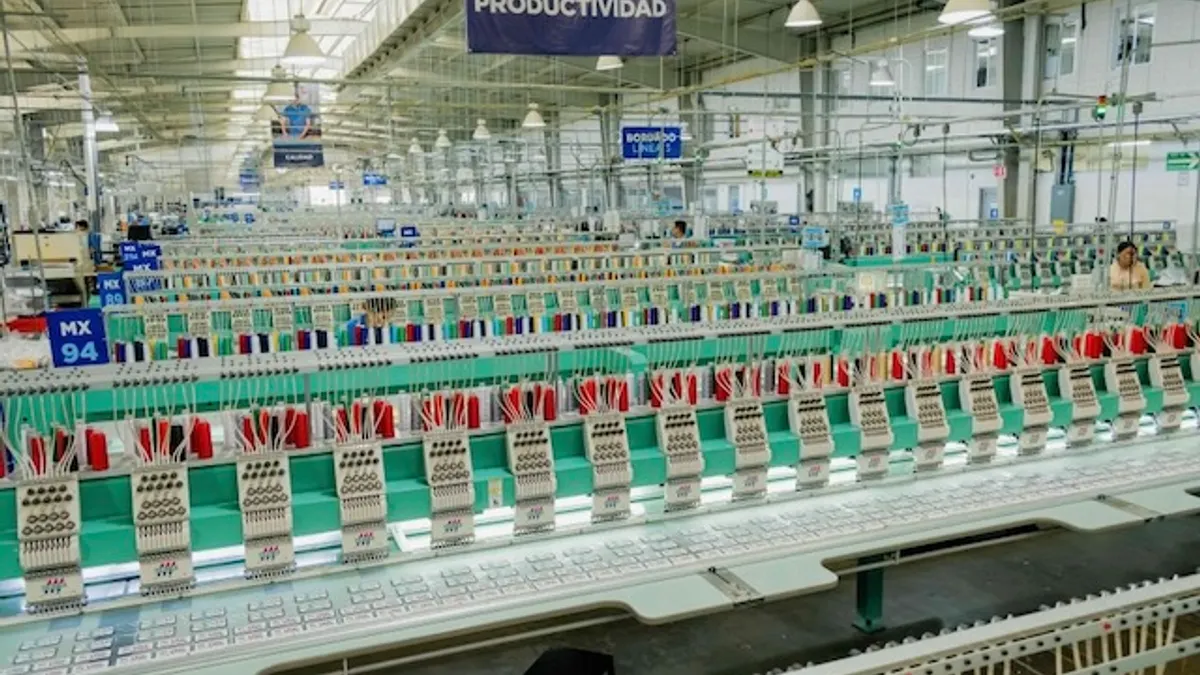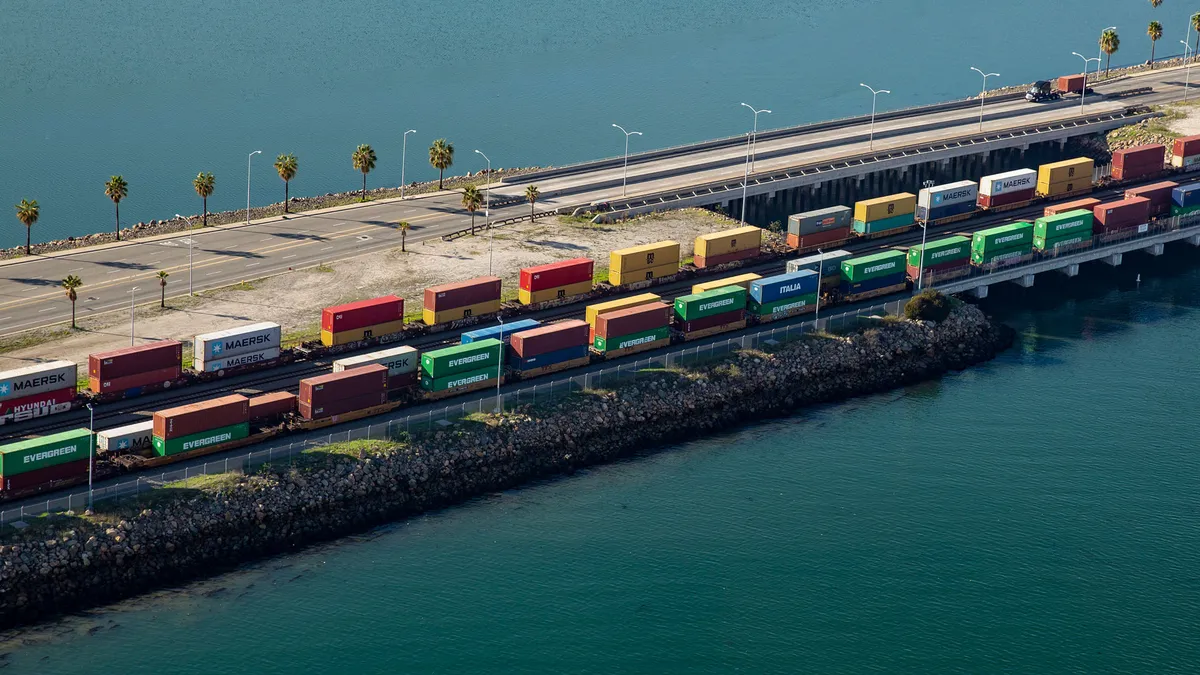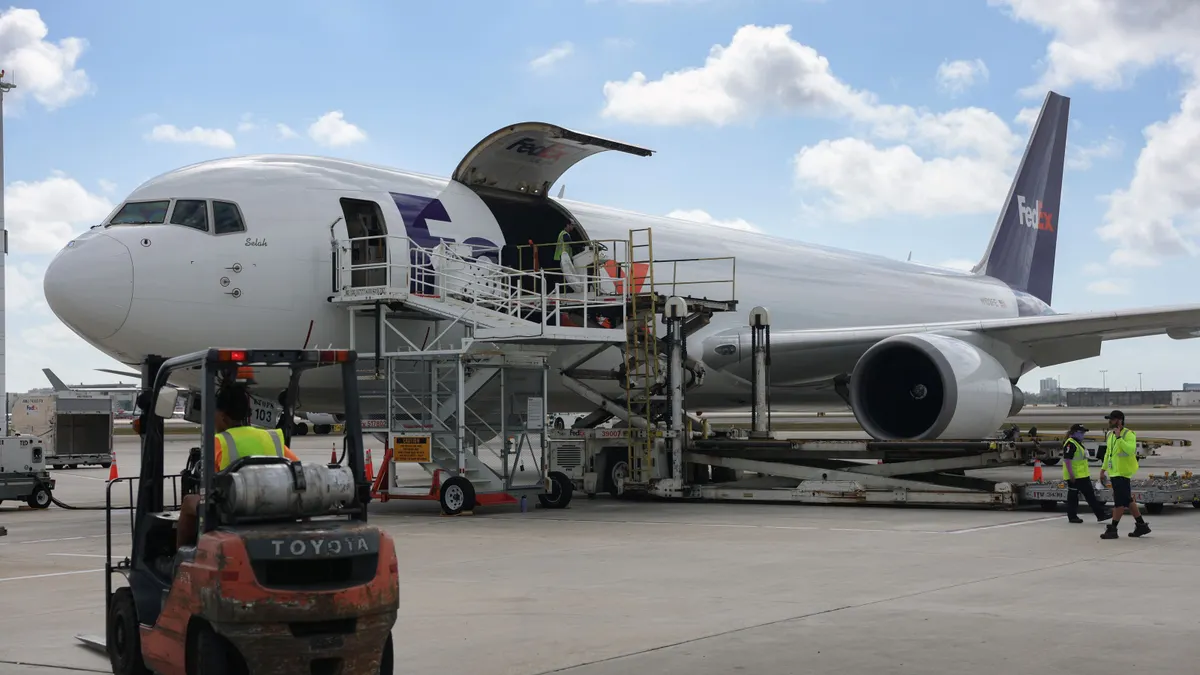Supply chains are constantly changing as new rules, technologies, resources and market trends transform operations. Here's a skim of the week's indexes, technology announcements, expansions and M&As from around the web.
In Case You Missed It
- A 'wiper virus' disrupted global logistics when it hit A.P. Moller Maersk and FedEx's TNT Express
- FedEx's Fred Smith has a new plan for tax reform, but without the border adjustment tax
- Kellogg asked for more time to reply to distributors' demand letter, who threatened class action
Market Snapshot
A set of anonymous sources within President Donald Trump's White House told media start-up Axios the President was considering what was previously unthinkable: Installing tariffs up to or around 20% on a set of imports, which may include steel, aluminum, semiconductors, paper and appliances like washing machines.
It was "one of the most consequential and contentious internal debates" of the presidency yet, according to Axios. The report says 22 of the 25 officials present at the meeting with Trump opposed imposing such tariffs, for fear of beginning a "major trade confrontation." However, one of the three supporting the proposal was the President himself, leaving little wiggle room on the issue.
If true, the move would affect global supply chains, and most heavily, the auto industry. Purchasing prices for imports of the above-mentioned products would inevitably rise. Perhaps, Axios notes, industry groups would seek injunctions against the measure.
The most concerning aspect of this, however, is the prospect of retaliation. Supply Chain Dive in February reported trade wars are difficult to begin in practice. But, when they do, the effects leave no winners. However, one way they start is with continued posturing: As threats of tariffs rise abroad, countries pledge to retaliate before a move is even made. So far, the European Union — one of the U.S.' largest trading partners — has promised to retaliate in kind against steel tariffs imposed by the U.S.
Nothing is certain yet, but that too is a problem. So much, the International Monetary Fund recently cut its forecast for U.S. economic growth, from 2.5% next year to 1.7% over the next five years. The decision was due to rising policy uncertainty, which often places major business decisions on hold, according to The Wall Street Journal.
Supply Chain Dive will be watching the situation unfold, but at present, the market snapshot can be summed up in one word: uncertain.
Technically Speaking
RFID tags are the next big thing — not only are manufacturers looking at using the technology for improving warehouse logistics and tracking packages, but consumers could use the tags when walking into a store to find products that suit their interests, according to ZDNet.
Used in this way, RFID tags could help manage inventory levels and improve the consumer experience while also saving money for manufacturers and producers. According to IoT Journal, a U.K.-based company RedBite has introduced a new service called "itemit," which allows the user to track inventory via QR codes and RFID tags. Amazon has already partnered with Auburn University’s RFID Lab to look into how to use the tags in Amazon’s fulfillment centers, and General Steel is already working to implement RFID tags into its distribution centers.
Other companies are beginning similar ventures to increase supply chain visibility: FourKites — a company that provides real-time tracking services, — just partnered with cloud-based transportation management company HaulFox.
These moves come as part of an ongoing trend for manufacturers and suppliers seeking complete control of their supply chains — eliminating middlemen and increasing supply chain visibility so as to cut costs, increase profit margins and adjust more easily to consumer expectations.
In other news, Avis Budget Group just partnered with Alphabet to manage Waymo, it’s autonomous cars unit, and seven European banks tapped IBM to head a blockchain platform to streamline and protect financial transactions.
Breaking Ground
Amazon just received a $5 million grant to build a new fulfillment center in Romulus, Michigan, only twenty minutes south of Detroit. Kroger is also building a new distribution center in the Detroit area: the new $25 million center in Chesterfield Township will create 377 new jobs, according to Crain’s Detroit Business.
Not to be outdone, German discount grocer Lidl -- which just opened its first 10 stores in the U.S. this month — announced earlier this week that in July it will open four new stores in Virginia and North Carolina.
When it comes to grocers, fierce competition is prompting some to break ground to reach new markets. Amazon’s recent acquisition of Whole Foods may be a threat to Kroger and Lidl: while Kroger has an established consumer base and lower prices than Whole Foods, Amazon will likely drive down Whole Foods’ prices and may offer same-day delivery options in some areas. Lidl’s prices are very low, and the German grocer’s counterpart Aldi has experienced enormous success in the U.S., stealing customers away from giants such as Walmart, Meijer, and others — suggesting that Lidl may also shake up the new grocer dynamic.
In other news, the Port of Corpus Christi is also expecting to break ground: according to the port’s deputy executive director and COO, the port will soon receive a $50 billion private investment.
Mergers & Analysis
After pulling various gymnastics over 21 months, Walgreens Boots Alliance on Thursday announced it would no longer pursue a merger with Rite Aid. The deal, originally announced in October 2015, was valued at $6.84 billion and its failure cost Walgreens $325 million in termination fees.
It was a long and protracted love affair, as Walgreens dreamt of increasing its store footprint, purchasing power and delivery options, but antitrust regulators remained unconvinced. The two would-be partners tried selling 865 Rite Aid stores to a competitor to avoid potential antitrust issues, as well as engaging the Federal Trade Commission, but in the end Walgreens decided it was not meant to be.
Instead, the drugstore retailer decided it would settle for a portion of the prize. Not a full merger, but a sweet purchase of 2,186 Rite Aid stores and three distribution centers (along with its related inventory) for $5.175 billion in cash, Retail Dive reports. The new deal would halve Rite Aid's retail footprint, but in exchange Rite Aid would be able to join Walgreens' pharmaceutical purchasing group, helping the drugstore secure better margins.
While not the dream partnership, it's still a good deal, fulfilling a portion of what each company sought. Walgreens can expand its network and potentially its delivery capabilities with additional distribution centers, while Rite Aid will be able to reduce its expenses by joining a powerful purchasing group.
In other news, the top Japanese container lines' merger into Ocean Network Express (ONE) was rejected by South Africa last week, but that's not stopping them from pursuing a merger viewed as necessary to remain competitive in the global shipping market. ONE is reportedly considering all its options, including quitting trade to South Africa altogether and appealing the regulator's decision.









